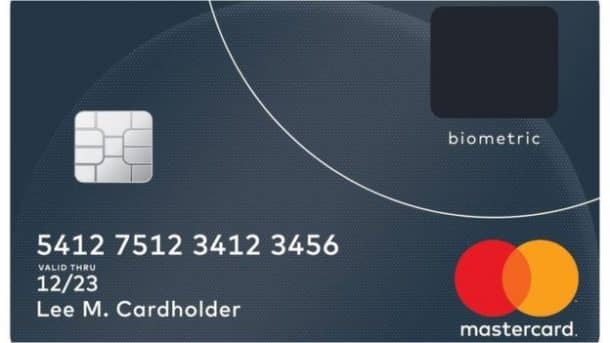Credit card theft has become an everyday fear for everyone. If you ever lose your credit card and don’t realize that you did, you are gonna have to pay a hefty price for it. To minimize such problems, Mastercard has unveiled a new credit card with a built-in fingerprint sensor. The trial for the new card was in South Africa. The payment technology is no different from the current cards, all you ave to do is place your finger on the sensor while making the payment. Security experts say fingerprints can be a compromise; thus they are not foolproof, but the idea is sensible nonetheless.

Mastercard’s security chief named Ajay Bhalla states that the technological advancement will help “to deliver additional convenience and security. It is not something that can be taken or replicated.”
The fingerprint feature is quite fragile and the Chief scientist at Berlin’s Security Research Labs, Karsten Nohl states, “All I need is a glass or something you have touched in the past.” He added that if the information gets stolen, “you only have nine fingerprint changes before you run out of options.” However, Mr. Nohl stays optimistic saying that it’s “better than what we have at the moment. With the combination of chip and PIN, the PIN is the weaker element. Using a fingerprint gets rid of that. Fingerprints have helped us avoid using terrible passwords, and even the most gullible person is not going to cut off their finger if [a criminal] asks nicely.”
The good part about the fingerprint sensor card is that there is no need for an additional fingerprint scanner, unlike other biometric payment systems. The card carries both the scanner and the template of user’s fingerprint itself. So, with these new fingerprint cards, stores do not require to upgrade their hardware equipment, and the cards will be accepted anywhere as long as they have the usual card scanners.
On the downside, the fingerprint technology only has an advantage when it comes to in-store purchases. The security remains the same for other online transactions in “card not present” situations.


